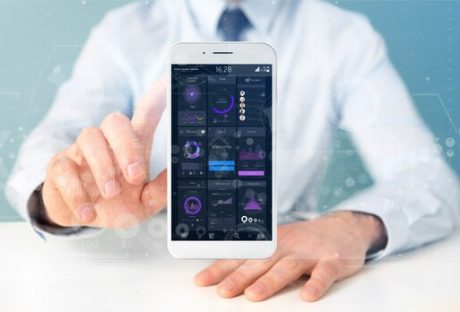Worldwide, there has been a sharp increase in the number of mobile application downloads. Organizations aim to increase user engagement for their applications by releasing new features every few weeks to gain a foothold in this market. This increases the pressure on testing organizations to publish thoroughly tested mobile applications to increase user engagement.
To accomplish this, they must have a testing process that not only delivers applications that are free of bugs and function well but also has more thorough coverage. Naturally, automated mobile testing is becoming necessary to satisfy these demands. Automation testing is advantageous for all applications, including web and mobile ones.
Appium is the most widely used automation tool for testing mobile applications out of the many available options. Appium is a free and open-source test automation tool that aids in automating mobile app testing to provide users with a high-quality application and a better user experience.
The use of Appium on LambdaTest for mobile testing will be covered in this article. Before getting there, let’s quickly review what mobile testing is and why Appium is utilized for this purpose.
What Is Mobile Testing?
The use of smartphones and mobile technology is growing exponentially. People find it difficult to see their lives without them. Today, we use mobile devices for practically everything, from grocery shopping to viewing films. To survive in the competitive market, mobile app testing has become imperative. Mobile testing guarantees that the apps and smartphones are safe, reliable, and easy to use.
Several tests are conducted on mobile devices to evaluate an application’s reliability, functionality, and usability. Mobile testing can be divided into testing of mobile applications and testing of mobile devices. Mobile device testing verifies and validates both the physical components and software aspects of a device to authenticate its quality. It evaluates aspects like the screen, apps, camera, etc. On the other side, mobile application testing is a procedure used to test applications that are being created for mobile devices. The primary goals are to test the apps’ usability, stability, and functioning. It makes sure that the chosen application, in terms of connectivity, hardware, and software, is compatible with the chosen device.
For an app to survive in the market today, mobile application testing is essential. The application is also tested in numerous other areas, such as its performance, security, and UI, to provide the best quality for the end users
Types Of Mobile Apps
There are three primary categories of mobile applications:
Native mobile apps
Native applications are platform-specific. In other words, they were created for a particular platform or operating system. It may be a Windows SDK, Android SDK, or iOS SDK. They have the extra benefit of being faster and more dependable in terms of performance because they concentrate on a single OS, but they are expensive to maintain. Such programs include Skype, Google Maps, and Snapchat, for instance.
Mobile Web Applications
Only mobile browsers are compatible with mobile web applications. They are accessible through mobile web browsers like Chrome and Safari. They are created using web-based languages like HTML, CSS, and JavaScript. Additionally, it is inexpensive and does not need users to install or update it. These include websites like AliExpress, OLX, Flipkart, etc.
Hybrid Mobile Applications
Native and web-based mobile apps are combined to create hybrid mobile apps. They can operate through browsers but can also be installed on native application devices. These apps are easy to create and affordable, but they lack the speed and power of native apps. These include services like Instagram, Uber, Gmail, etc.
Now to test these apps many testers and developers leverage automation test tools like Appium. Let’s quickly define what Appium is.
Appium
Appium is a free, open-source, cross-platform test automation tool that uses the common WebDriver library to automate test cases for web, native, and hybrid applications. It primarily focuses on testing mobile applications while utilizing the same API across several mobile operating systems, such as Android and iOS.
The most popular mobile testing tool, Appium, offers simplicity, flexibility, and cost-friendliness for delivering the best user experiences with the continuous delivery method. It is used for quick and reliable testing across numerous platforms and devices.
Numerous programming languages, including Java, JavaScript, Python, PHP, Ruby, C#, etc., are supported by Appium. This gives testers the freedom to create test scripts in any programming language they choose. With its many features, mobile testing with Appium has quickly become popular in the mobile application organization.
Why Use Appium
Appium continues to be the top option for mobile app testing, regardless of whether the application is native, hybrid, or mobile and operating on Android, iOS, or Windows. By providing scalability and flexibility, Appium significantly improves the effectiveness of testing for mobile apps. It stands out as the best possible choice for testing mobile applications due to its broad feature set. Let’s examine a few of its attributes.
- It allows for the flexibility to write test code in a variety of programming languages, including Java, JavaScript, PHP, Ruby, Python, and C#, and it can automate any mobile application created in any of these languages.
- Appium allows test automation scripts to run simultaneously on various Android or iOS sessions. This ensures scalability while accelerating the testing process.
- It has a built-in UI Automator that enables thorough examination of mobile apps while producing thorough logs and reporting structures for a better understanding of test results and enhanced troubleshooting.
- Appium offers the reuse of the same code for many device platforms, including iOS, Android, and Windows, which saves a significant amount of time and work.
- It provides versatility in allowing users to select their testing environment and device by allowing testing of mobile applications on emulators, simulators, and real devices in the cloud.
- It provides cross-platform compatibility, making it possible for the same tests to run on many platforms, expanding the coverage.
- It provides real-time test monitoring that enables collaborators to see and share device interactions using the integrated collaborative screen-casting capability, thus strengthening the execution of tests.
- Appium smoothly integrates with the TestNG testing framework, providing a greater number of capabilities.
- Through test scripts, it gives QAs complete access to the databases and back-end APIs. This aids in evaluating errors that originate from databases or back-end APIs.
Why Use Lambdatest For Appium Tests?
As is already known, Appium enables the testing of mobile applications on emulators and simulators. However, keep in mind that emulators and simulators are completely insufficient for testing at the final stage. They are unable to duplicate several device features that are required to optimize the app for unfavorable events, such as low power, unstable network, IP geolocation, and many more.
Therefore, executing Appium tests on real device cloud is essential to provide conclusive, accurate results, make an app suited for working in actual user conditions, and ensure that the user experience is always at its best.
However, it is highly challenging and expensive to set up an internal device lab that must be regularly updated and maintained for both the newest and older versions. Therefore, using a cloud-based testing platform like LambdaTest is recommended because it makes thousands of real devices instantly accessible for testing.
Appium and LambdaTest, an AI-powered test orchestration and execution platform, can work together seamlessly. As a result, testers can scale their existing testing across several platforms and develop, run, and analyze their test automation with Appium on LambdaTest’s real device cloud. Additionally, QAs can use Appium on the LambadTest real device cloud to do manual and automated app testing.
LambdaTest enables testers to run Appium tests by offering online cloud-based access to more than 3000 real devices, browsers, and operating system combinations online. As a result, testers may meet deadlines more quickly and with less setup time.
The Appium automation testing on LambdaTest can assist with:
- Simplify the entire CI/CD process, make it simple to write reliable Appium scripts, and minimize the complexity of test frameworks.
- Support numerous mobile devices for parallel testing to speed up test execution and guarantee the best app performance across a range of devices, networks, and geographical regions.
- Test apps on actual remote devices in real-world conditions to speed up development and quickly find and fix major flaws.
Additionally, LambdaTest offers a wide variety of advanced features that facilitate easy-to-use, effective testing. Here are a few of these features:
- It has an inbuilt mobile inspector that makes it simple for testers to check the components of an app. Additionally, it enables them to record their test procedures from the same location.
- It enables seamless integration with well-known technologies like Circle CI, Jenkins, Bamboo, and others to speed up DevOps and continuous delivery workflows.
- Gives testers access to a variety of debugging tools for Appium testing, including text logs, network logs, device logs, Appium logs, extensive reports, and accompanying screenshots and videos for both successful test execution and complete test failure.
- The test cases execution metrics reports can be retrieved whenever necessary from anywhere. This helps to support all remote team workflows.
- A mobile app can now be developed utilizing a variety of technologies and programming languages. Thus, another fantastic benefit of using LambdaTest is that it covers all of the key technologies and programming languages required to support a particular set of development practices.
- Furthermore, with LambdaTest, testers can benefit from manual cross-browser testing, automation testing, visual user interface testing, responsive testing, manual app testing, geolocation testing, and more, all with lifetime free access to LambdaTest.
The Prerequisites To Use Appium
There are a few prerequisites that must be installed on the system before automating apps with Appium.
- Downloading and installing the JDK (Java Development Kit) and the Appium Desktop/Server.
- Installing, and configuring the environment variable for Java.
- Installing the Android Software Development Kit (SDK) after downloading it.
- JAR file for Selenium Server.
- Setting up the Eclipse IDE.
- Having access to Google Play’s APK app information.
- js installation is not necessary. Because “Node.exe” and NPM are included by default whenever the Appium server is installed.
Integrating Appium With Lambdatest
LambdaTest integration with Appium is necessary to utilize Appium testing fully. The following actions are necessary for the integration process:
- Visiting LambdaTest and creating an account.
- Acquiring the API credentials needed for Appium integration. The credentials will facilitate linking the LambdaTest cloud infrastructure and the Appium tests.
- Next, setting up and specifying the desired capabilities in the Appium tests to specify the device, operating system, browser, and any other essential factors that create the intended test environment and guarantee that tests are executed on the desired devices in the cloud. These configuration variables specify test environments and guarantee the smooth operation of the tests in such environments.
- The next step is configuring the test execution by including the appropriate capabilities and the LambdaTest endpoint URL in the Appium test script. By doing so, the platform and the Appium tests will be connected.
- Finally, run the Appium tests and keep track of their progress on the LambdaTest dashboard. The test results can then be analyzed to find any problems that require attention by examining the test reports, logs, and screenshots.
Conclusion
It may be concluded that due to Appium’s cross-platform capability and simplicity of use, it has grown to be widely utilized in testing mobile applications for iOS and Android to meet the expectations of quick and dependable testing that spans numerous platforms, devices, and versions.
In comparison to alternative testing techniques, Appium offers greater efficiency, flexibility, and cost-friendliness, empowering teams to deliver excellent user experiences while utilizing the continuous delivery methodology.
It is advantageous to use Appium with a cloud testing platform like LambdaTest because it gives users access to automated test environments with cloud-hosted real mobile devices that are simple to use. The testing process is made more easy by having access to the vast array of functions offered by the cloud.
Read Also:
- Which Is A Benefit Of Using Server–To–Server App Conversion Tracking Over An SDK?
- Mark Stiffler Gives You 7 Ways To Automate Your Business For Success
- 9 Ways To Improve Efficiency At Your Manufacturing Business
























